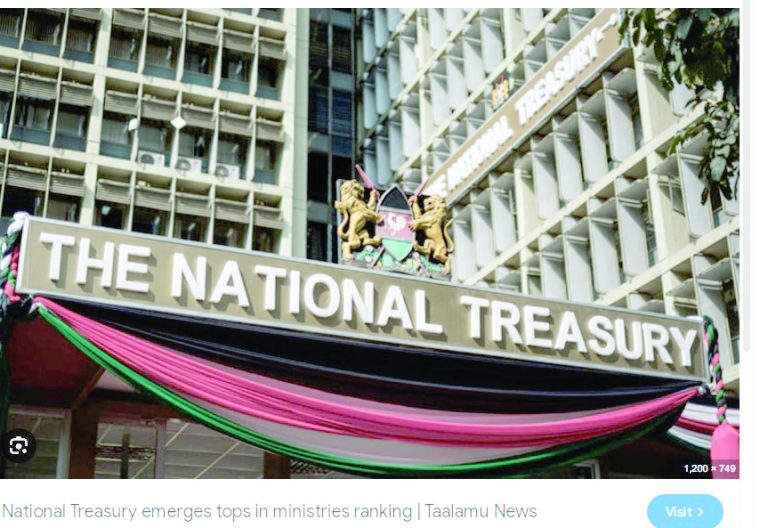Treasury seeks to recover Sh6b in VAT exemptions

National Treasury, through the National Assembly, is seeking to recover close to Sh6 billion in Value Added Tax (VAT) previously waived for investors who had committed over Sh2 billion in investments during the last financial year.
In the Business Laws (Amendment) Bill 2024, the Treasury had initially proposed VAT exemptions as an incentive to attract investors and create employment opportunities for Kenyan youth.
This provision had first appeared in the now-abandoned Finance Bill 2024/25 but was later passed through an amendment on December 27, 2024.
It stipulated that businesses meeting certain investment thresholds would be granted the tax incentive upon commencement of the Act.
As a result, several qualifying businesses were exempted from VAT, a move that the Treasury now seeks to reverse in order to raise more revenue.
The change comes amid growing public pressure to reduce the tax burden on ordinary Kenyans without imposing new levies. However, it also places a strain on businesses that had already planned their operations based on the VAT relief.
Appearing before the National Assembly’s Finance Committee on Thursday, Joseph Ngugi, Senior Deputy Director for Macro and Fiscal Affairs, noted an influx of letters from investors seeking clarification and refunds under the previous incentive scheme. He acknowledged the confusion surrounding the exemption’s application period.
“We’ve had many companies raise complaints, even escalating them to the President. We had approved some exemptions before December 24. That’s why we had initially proposed that a business providing evidence of qualifying investment for one year could enjoy the incentive. But that was never formally granted, and we’re now reviewing that position,” he told the committee.
Despite the volume of claims, he explained that processing has stalled due to the lack of clarity over the exemption period.
“The challenge now is to resolve the problem that was created when businesses approached us expecting exemptions. We’re not issuing any further approvals since the passage of the Tax Laws Amendment,” he added.
The reversal effectively increases the cost of doing business, as companies that had factored in the VAT exemption into their budgets must now absorb the additional costs through operational revenues.
Beyond the financial strain, the move also raises concerns about the predictability of Kenya’s regulatory environment. Frequent policy shifts, particularly those affecting taxes, risk discouraging both potential and existing investors.
Kitui Rural Member of Parliament David Mboni, who chaired the session, asked the Treasury to provide data on how much investment had been attracted due to the VAT incentive and which businesses benefited. “When it comes to public funds, we need to weigh societal interests and ensure that decisions are grounded in facts. Help us with the data so we can make informed decisions that preserve our fiscal space in this constrained economic climate,” Mboni said.
The Treasury’s move has faced pushback from the Institute of Certified Public Accountants of Kenya (ICPAK), which was represented at the hearing by Fred Kimotho.
ICPAK proposed that businesses which had benefited from the VAT exemption be granted a transition period, with the amendment taking effect 12 months after the commencement of the Act.
This transitional period would allow current beneficiaries to continue enjoying the exemption until the end of the 12-month window, while new businesses would begin paying VAT immediately.
“The 12-month proposal is essentially a business continuity buffer,” said Kimotho. “If you received the exemption as of January 1, 2025—or even as of December 27, 2024—you would retain that status for a year. After that, the exemption lapses. It’s a child-health approach to business planning.”
Tax unpredictability continues to be flagged as a key barrier to business sustainability in Kenya. Sudden changes in tax policy have previously driven notable companies to shut down or relocate to more investor-friendly jurisdictions.














